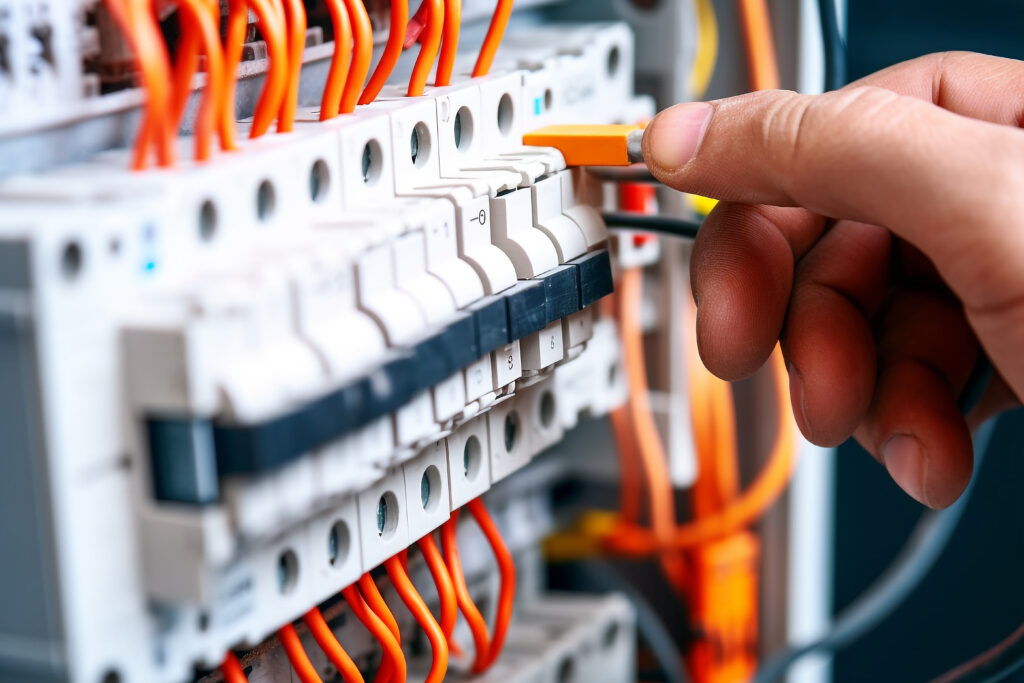When it comes to the placement of an air conditioner’s outdoor unit, one question often arises: Can it be in direct sunlight? The positioning of your AC unit can significantly affect its performance, efficiency, and longevity. This article explores how sunlight affects AC outdoor units, whether it matters if an AC unit is in the sun, and whether outdoor AC units need to be protected from direct sunlight.
How Does Sunlight Affect AC Outdoor Units?

Impact on Efficiency
Exposure to direct sunlight can influence the efficiency of an AC outdoor unit in several ways. When an AC unit is placed in the sun, its metal casing absorbs heat, which can lead to increased temperatures inside the unit. This situation can have several effects:
- Higher Energy Consumption: When the outdoor unit heats up due to sunlight exposure, it has to work harder to dissipate the extra heat. This increased effort requires more energy, leading to higher utility bills .
- Reduced Cooling Efficiency: The heat absorbed by the outdoor unit can decrease its overall cooling capacity, making it less effective at maintaining the desired indoor temperature .
Effect on Component Wear and Tear
Continuous exposure to sunlight can accelerate wear and tear on the unit’s components:
- Damage to Insulation: Sunlight can degrade the insulation around refrigerant lines, affecting the cooling process’s efficiency .
- Electrical Component Damage: Excessive heat from the sun can affect electrical components, potentially leading to failures or reduced lifespan .
Does It Matter If an AC Unit Is in the Sun?
The placement of the AC outdoor unit can have a significant impact on its operation. Ideally, the unit should be installed in a location that minimizes direct sunlight exposure while allowing for adequate airflow:
- Avoiding Overheating: While placing the unit in direct sunlight won’t necessarily damage it immediately, the additional heat can cause the system to overheat, especially if airflow is restricted .
- Airflow Considerations: The unit needs sufficient airflow to dissipate heat efficiently. Placing it in a shaded area with good airflow can help maintain optimal performance .
Balancing Sun Exposure and Airflow
It’s important to strike a balance between avoiding direct sunlight and ensuring adequate airflow. Enclosing the unit completely, such as placing it inside a shed, can restrict airflow and lead to overheating. Therefore, strategic placement with some shading, without enclosing the unit, is recommended .
Do I Need to Protect the Outdoor AC Unit From Direct Sunlight?

Benefits of Shading
While placing an AC unit in the shade is not mandatory, there are benefits to providing some protection from direct sunlight:
- Improved Efficiency: Shading the unit can reduce the temperature of the air drawn into it, allowing the system to operate more efficiently .
- Extended Component Life: By reducing exposure to sunlight, the components inside the unit are less likely to overheat, which can extend their lifespan .
- Protection From Environmental Damage: Shading can also protect the unit from impact damage caused by hailstones and other debris .
How to Provide Shade
If you decide to provide shade for your AC unit, there are several methods to consider:
- Planting Trees or Shrubs: Planting trees or shrubs around the unit can provide natural shade while maintaining airflow. Be sure to leave enough space for proper air circulation .
- Building a Pergola or Awning: Installing a pergola or awning can offer shade while allowing air to circulate freely. This solution can be especially effective in areas with intense sun exposure .
Do Outdoor AC Units Need to Be Covered?
Considerations for Covering
Covering an AC unit is not recommended, especially during operation. Covers can restrict airflow and trap heat, leading to overheating and reduced efficiency:
- Airflow Restriction: Covers can prevent the unit from dissipating heat effectively, leading to increased energy consumption and potential damage .
- Moisture Buildup: Covering the unit can also trap moisture, leading to rust and corrosion of components over time .
Conclusion
The placement and protection of your AC outdoor unit can significantly impact its efficiency and lifespan. While it is not strictly necessary to avoid placing the unit in direct sunlight, providing some shade can improve performance and reduce wear and tear. However, it’s important to ensure that any shading does not restrict airflow, as adequate ventilation is crucial for the unit’s operation. Regular maintenance, including cleaning and inspections, is essential for keeping the AC system running efficiently and preventing costly repairs. By considering these factors, homeowners can optimize their AC unit’s performance and enjoy reliable cooling throughout the warmer months .


